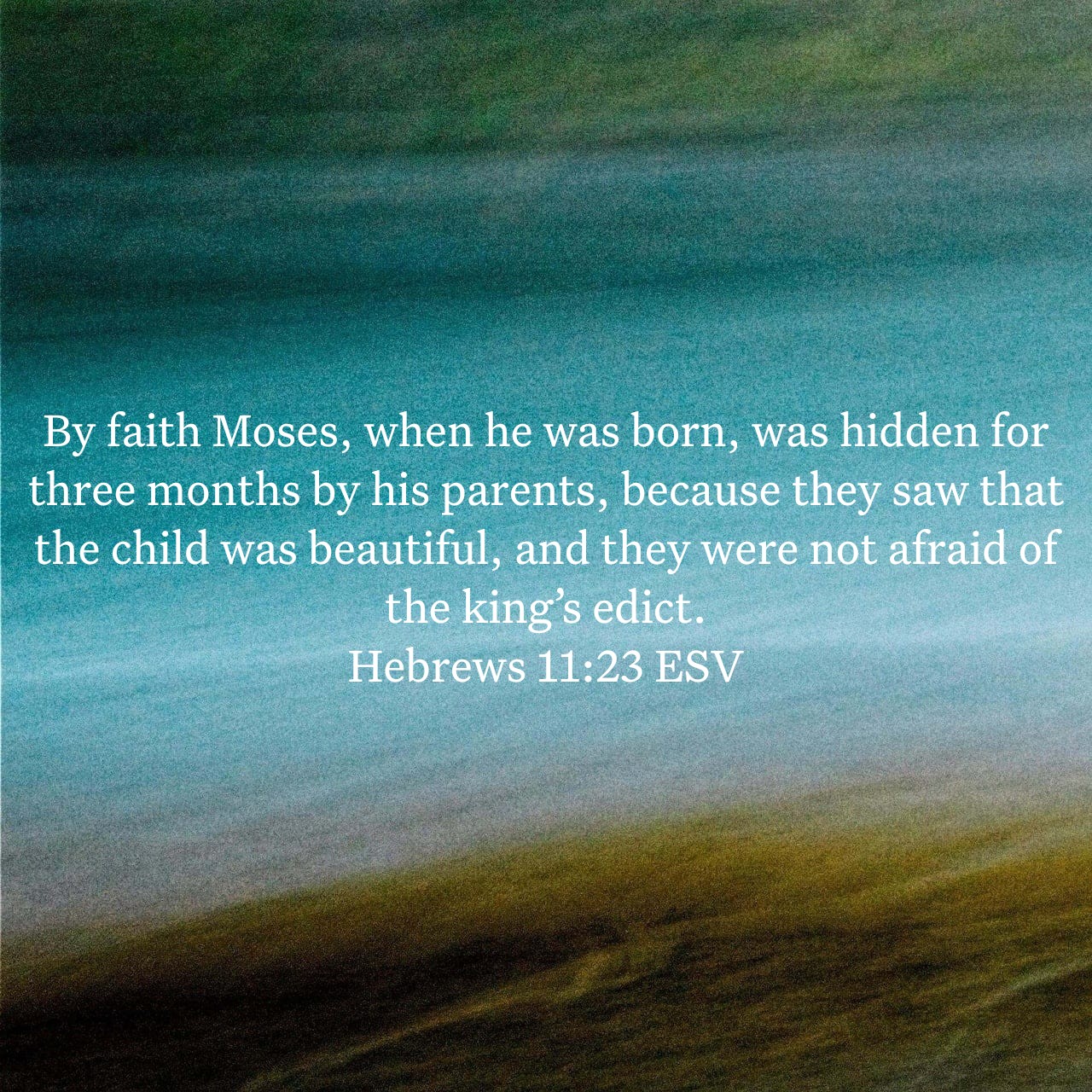Devotional 26 July 2025

When the writer of Hebrews lists the heroes of faith, he is not offering a dry catalog of historical events. Each example is carefully chosen to encourage believers who are tempted to shrink back. In Hebrews 11:23, we find an unexpected entry: not Moses himself, but his parents. Their act of hiding their newborn son becomes a profound testimony of faith in the face of danger.
At the heart of their action is a truth that remains vital for us today: faith empowers courageous disobedience to human authority when it conflicts with divine will, driven by conviction in God’s greater purpose.
Pharaoh, the supreme authority in Egypt, had decreed death for every male Hebrew child (Exodus 1:22). To defy him was to risk not only the child’s life but their own. And yet, Moses’ parents “were not afraid of the king’s edict.” Their fear of God outweighed their fear of man (Proverbs 29:25). This same courage echoes throughout Scripture:
The Hebrew midwives disobeyed Pharaoh, sparing children out of reverence for God (Exodus 1:17).
Shadrach, Meshach, and Abednego refused to worship Nebuchadnezzar’s image, even under threat of death (Daniel 3:16–18).
The apostles boldly declared, “We must obey God rather than men” when forbidden to preach Christ (Acts 5:29).
Faith doesn’t always look like peaceful agreement, it often takes the form of bold, risky defiance against injustice when God’s commands are at stake.
Hebrews says they hid Moses “because they saw that the child was beautiful.” This wasn’t merely physical beauty. Acts 7:20 and Exodus 2:2 both imply there was something unique, perhaps a divine calling sensed by faith. Like Hannah dedicating Samuel before his calling was revealed (1 Samuel 1:27–28), they entrusted their son to God’s unfolding plan. They had no blueprint, only the conviction that God had a purpose for him.
Similarly, Jeremiah was known by God before birth and consecrated as a prophet (Jeremiah 1:5). Psalm 139:13–16 reminds us that each life is formed with intentionality. Moses’ parents believed this, even when the outcome was unseen.
When human laws contradict God’s commands, faith chooses the higher law. Paul reminds us in Romans 13 to respect governing authorities, but Scripture is clear that God’s authority supersedes all. Isaiah 33:22 declares, “The Lord is our judge; the Lord is our lawgiver; the Lord is our king.” Moses’ parents knew that obeying Pharaoh would mean rejecting God’s will to preserve His people and prepare for their deliverance.
They had no angelic visitation, no audible voice from heaven. They had a fragile infant and a cruel edict, and they acted. Hebrews 11:1 tells us that “faith is the assurance of things hoped for, the conviction of things not seen.” Moses’ parents didn’t know how God would protect him. They only knew they must act. Like Abraham setting out for a land he didn’t know (Hebrews 11:8), or Noah building an ark for a flood not yet seen (Hebrews 11:7), they trusted God’s character when the future was obscure.
To the original audience of Hebrews, Jewish Christians facing persecution and tempted to return to Judaism, this example called them to courageous loyalty to Christ. Their suffering might tempt them to compromise, but like Moses’ parents, they were to act in obedience even when the cost was high.
We, too, live in a world where obeying God may sometimes mean standing against prevailing cultural norms, unjust systems, or even legal mandates. Faith doesn’t always promise safety, but it always calls for obedience. Like Moses’ parents, we must prioritize God’s will, trust His purpose, and act even when the details remain unseen.